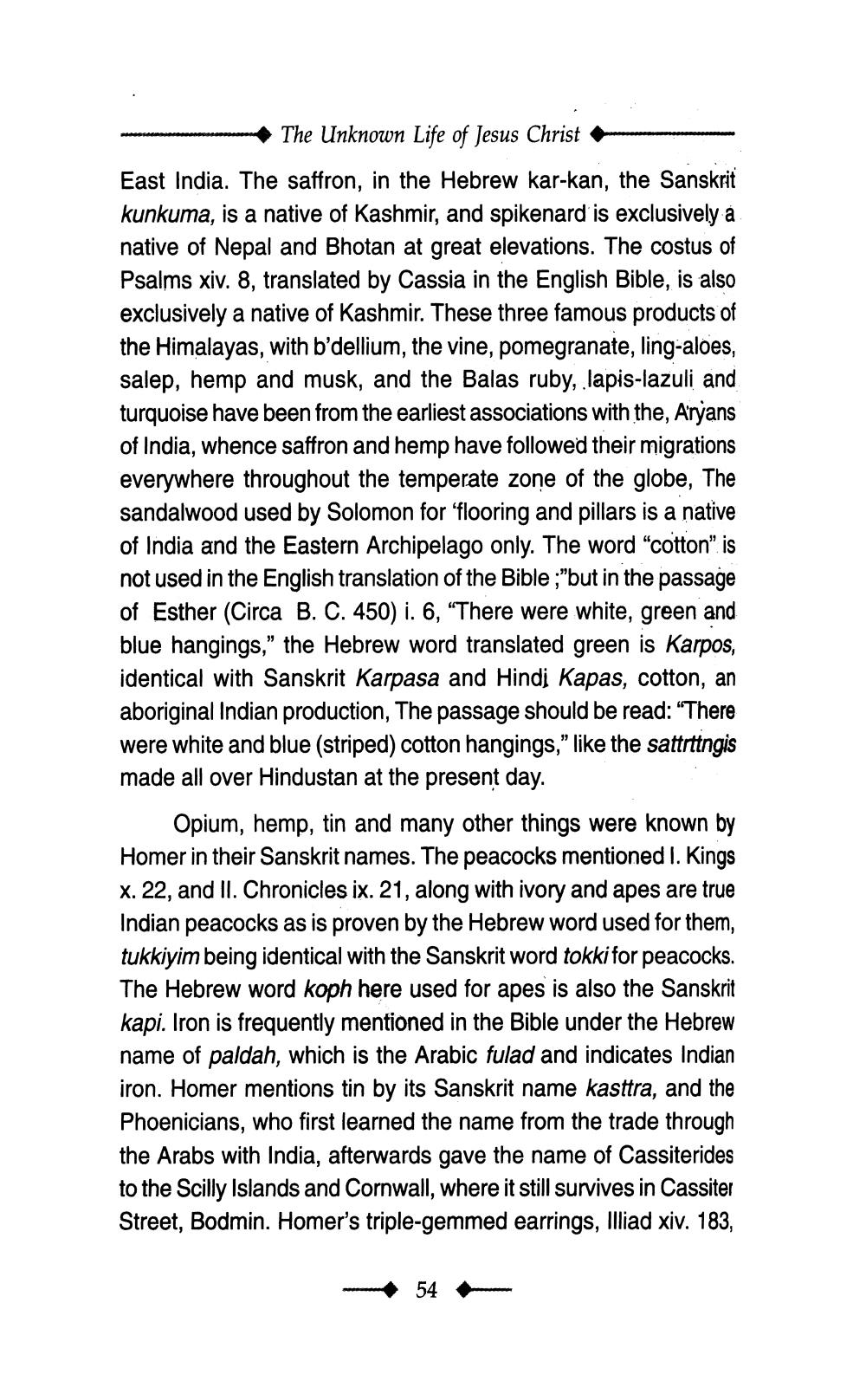________________
The Unknown Life of Jesus Christ East India. The saffron, in the Hebrew kar-kan, the Sanskrit kunkuma, is a native of Kashmir, and spikenard' is exclusively a native of Nepal and Bhotan at great elevations. The costus of Psalms xiv. 8, translated by Cassia in the English Bible, is also exclusively a native of Kashmir. These three famous products of the Himalayas, with b'dellium, the vine, pomegranate, ling-aloes, salep, hemp and musk, and the Balas ruby, lapis-lazuli and turquoise have been from the earliest associations with the, Arjans of India, whence saffron and hemp have followed their migrations everywhere throughout the temperate zone of the globe, The sandalwood used by Solomon for 'flooring and pillars is a native of India and the Eastern Archipelago only. The word “cotton", is not used in the English translation of the Bible;"but in the passage of Esther (Circa B. C. 450) i. 6, “There were white, green and blue hangings," the Hebrew word translated green is Karpos, identical with Sanskrit Karpasa and Hindi Kapas, cotton, an aboriginal Indian production, The passage should be read: “There were white and blue (striped) cotton hangings," like the sattrtingis made all over Hindustan at the present day.
Opium, hemp, tin and many other things were known by Homer in their Sanskrit names. The peacocks mentioned I. Kings X. 22, and II. Chronicles ix. 21, along with ivory and apes are true Indian peacocks as is proven by the Hebrew word used for them, tukkiyim being identical with the Sanskrit word tokki for peacocks. The Hebrew word koph here used for apes is also the Sanskrit kapi. Iron is frequently mentioned in the Bible under the Hebrew name of paldah, which is the Arabic fulad and indicates Indian iron. Homer mentions tin by its Sanskrit name kasttra, and the Phoenicians, who first learned the name from the trade through the Arabs with India, afterwards gave the name of Cassiterides to the Scilly Islands and Cornwall, where it still survives in Cassiter Street, Bodmin. Homer's triple-gemmed earrings, Illiad xiv. 183,
54




